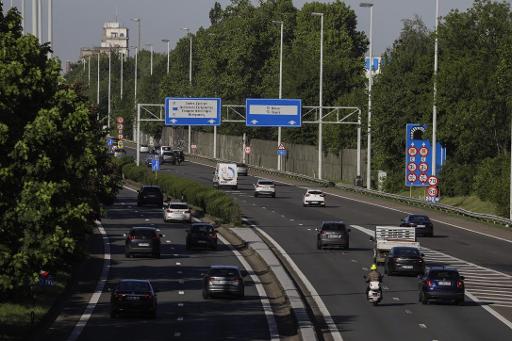In order to achieve its objectives of reducing CO2 emissions by 35% by 2030, Belgium will have to tackle the transport sector in one way or another.
In a study released by Le Soir, the Institute for Sustainable Development (IDD) recommends reducing maximum speed and/or introducing a kilometre charge.
Transport will have to reduce its emissions by 800 million tonnes of CO2 per year until the deadline, calculated economist Philippe Defeyt, who heads the IDD. This corresponds to 3% per year.
Related News
- Proposal to charge green tax on meat to offset environmental damage
- Foreign drivers make up over half of offenders in Ghent's LEZ
- Over half of Uber users in Brussels willing to pay more for all-electric fleet
Technology won't come to our rescue, the economist believes. "Even if half of all new car registrations are hybrids and half are electric, we won't reach the target." Because the Belgians are opting for heavier and heavier models.
Alongside obvious solutions such as reducing the number of journeys and/or average distances travelled and promoting 'soft' means of transport, the economist recommends other, less obvious ones.
The first is to curb the speed of cars: "A reduction of 20 km/h on networks with two or more lanes and 10 km/h on the rest of the network should make it possible to reduce emissions by about 10% and save 3 years compared to the 2030 target," says the IDD study. A measure that does not require an investment that would have an immediate effect.
The second measure is the implementation of an intelligent kilometre charge on the territory, which would also make it possible to combat traffic jams. This measure is being considered in Brussels, which is trying to convince the other two regions.
The Brussels Times

